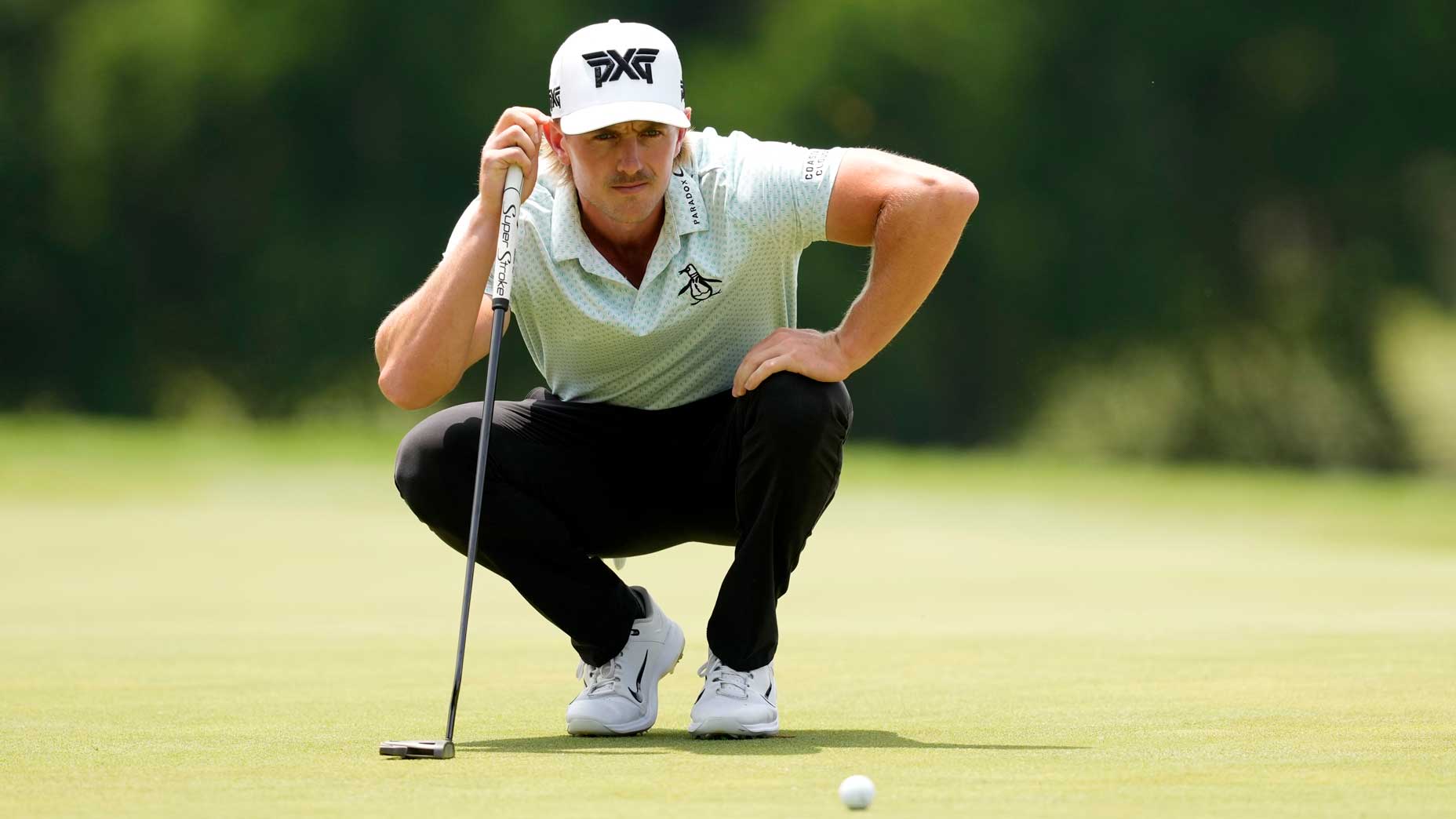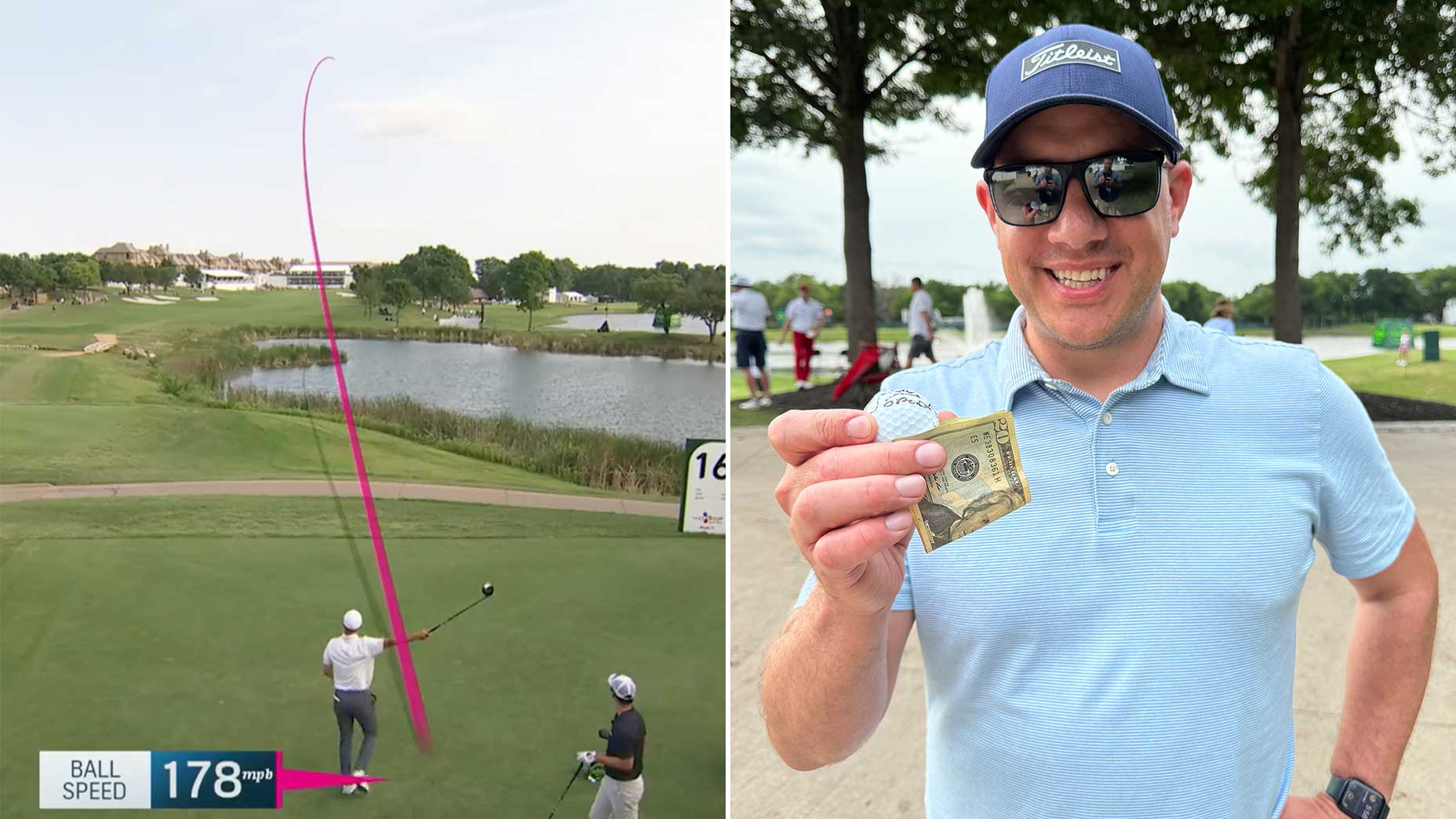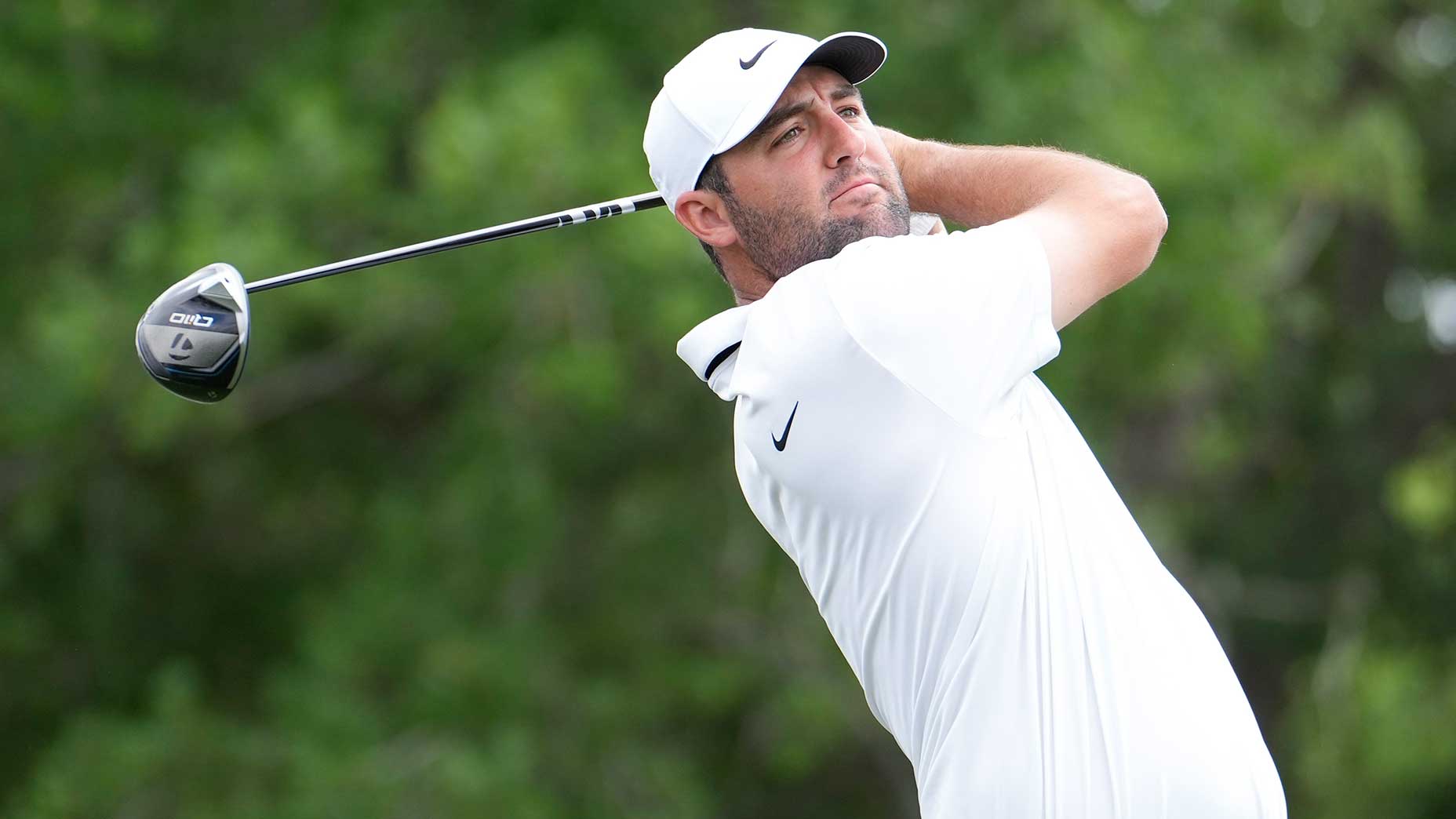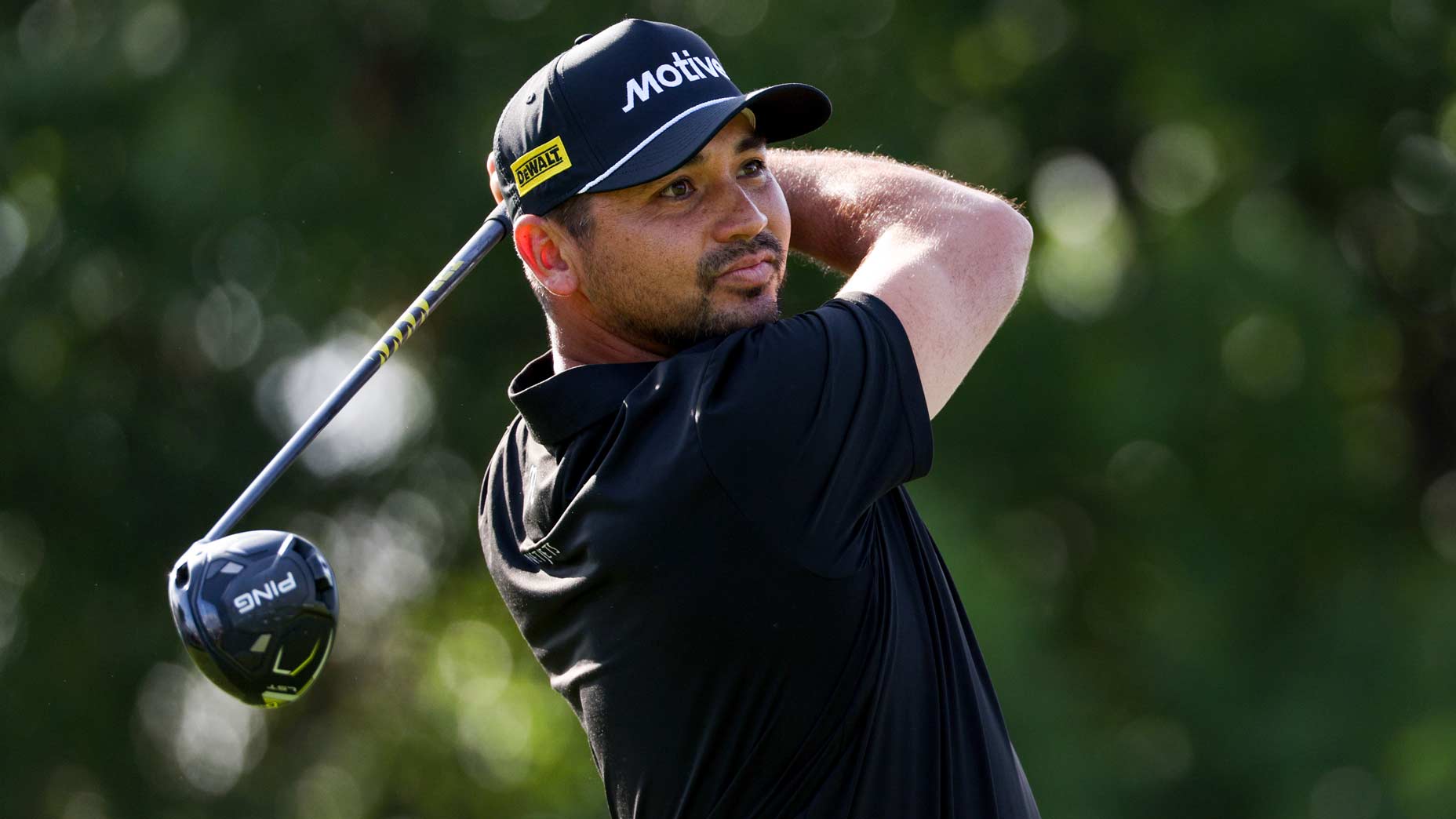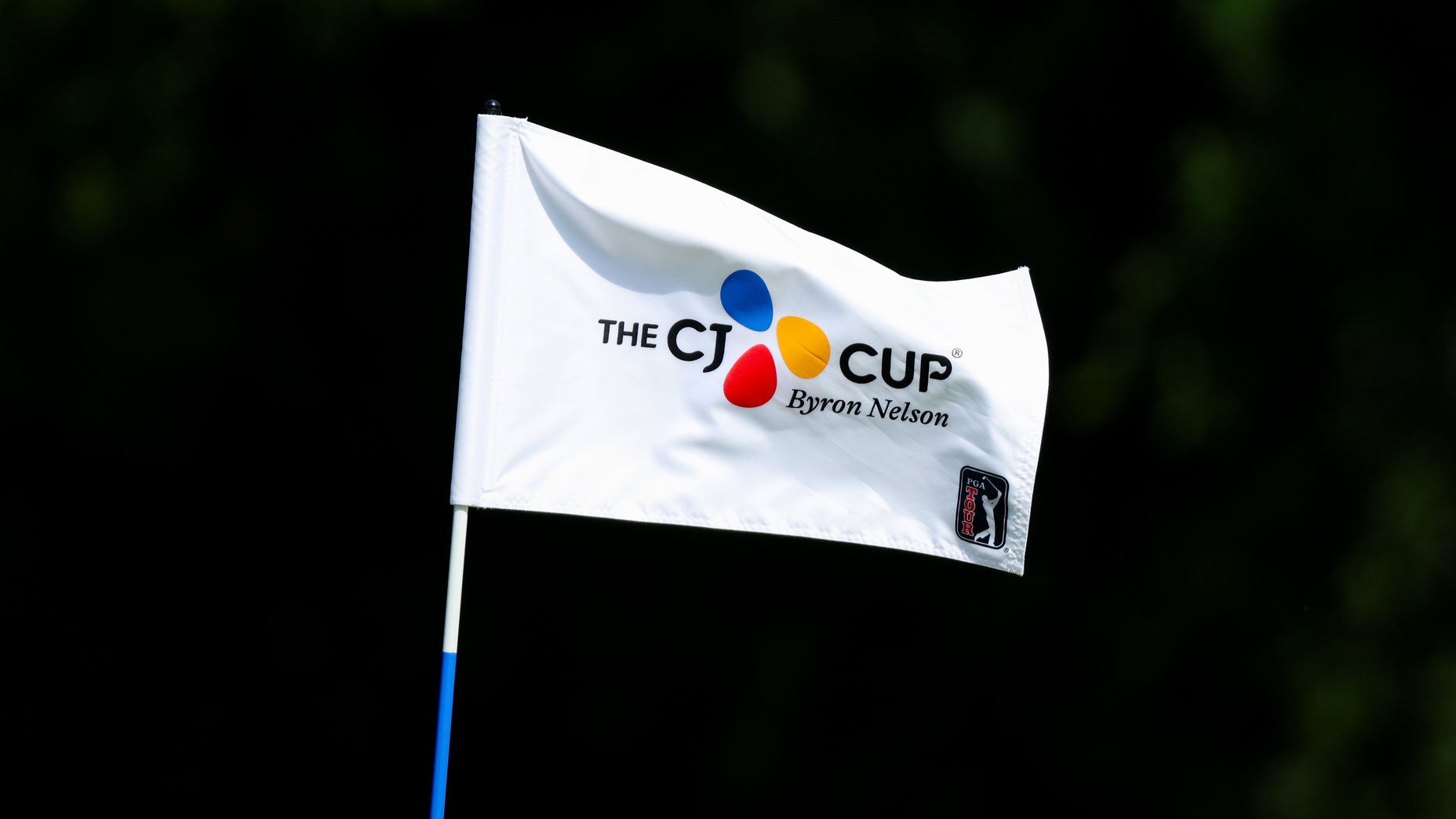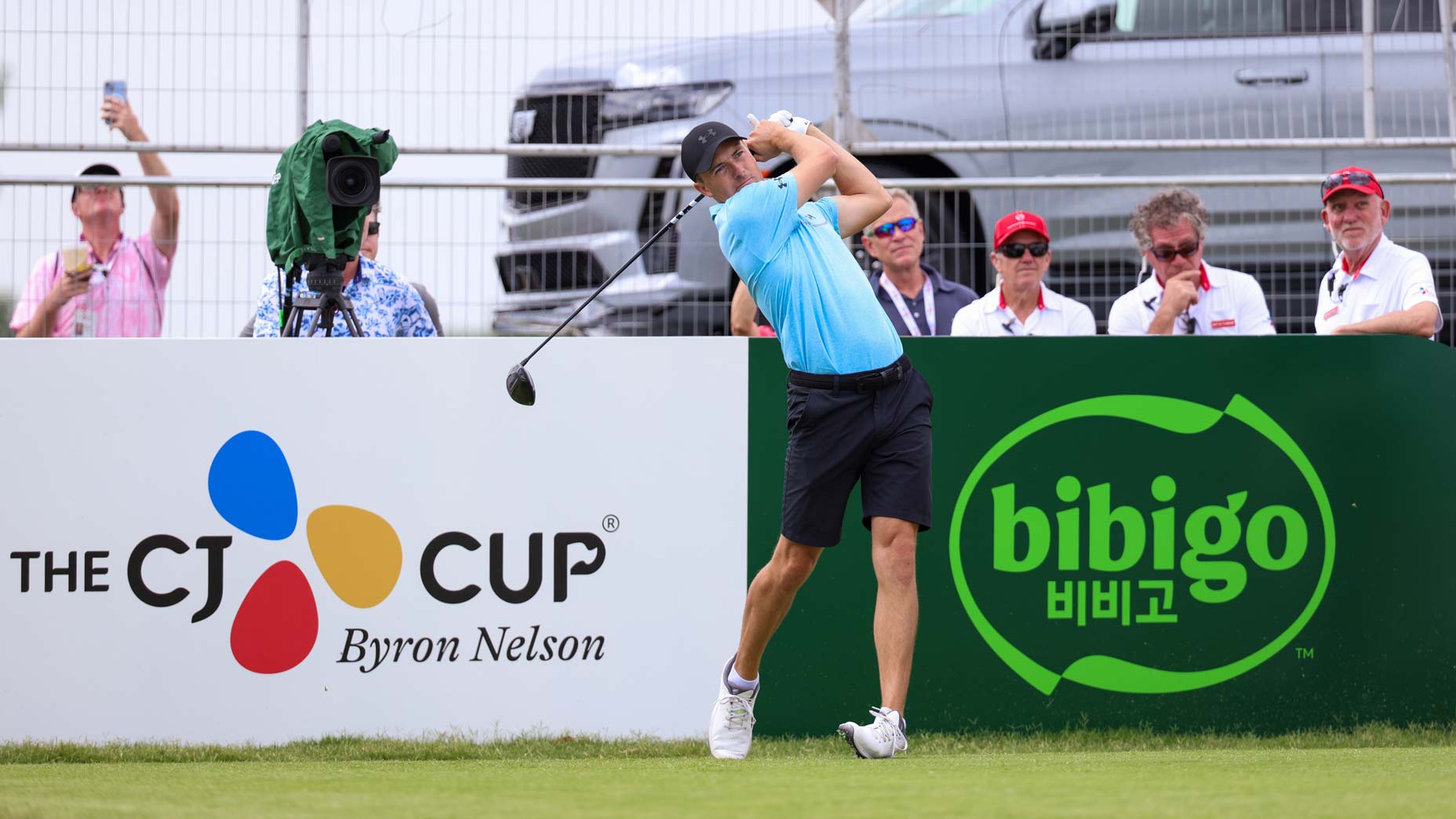As Senate digs in, PGA Tour’s star dealmaker slides into spotlight

Jimmy Dunne, an independent director on the PGA Tour's policy board, fielded questions from a Senate subcommittee Tuesday.
getty images
WASHINGTON — On a picturesque Tuesday morning in the heart of the nation’s capital, Jimmy Dunne, a 65-year-old single-digit handicap, surely would have rather been on a first tee somewhere, perhaps up the road at Congressional Country Club, or a little further north at Burning Tree, or at any of the other clubby citadels in this golf-rich region. Instead, Dunne was facing a different kind of challenge, one of the weightiest of his storied career: trying to convince a subcommittee of U.S. senators that the PGA Tour’s framework agreement with Saudi Arabia’s Public Investment Fund — which funds LIV Golf — is a deal, in the simplest terms, that needs to get done.
Dunne, as you likely know by now if you’ve been following the PGA Tour-LIV saga even casually, is a Wall Street legend, mergers-and-acquisitions whiz and Augusta National and Seminole member who joined the Tour’s policy board in January — and who has wasted little time in that capacity flexing his negotiating muscle. The proposed partnership between the Tour and the PIF that came to light on June 6 — through which the PIF could end up investing north of a billion dollars into the Tour — largely was brokered by covert meetings between Dunne and PIF governor Yasir Al-Rumayyan.
Al-Rumayyan declined to attend the hearing with the U.S. Senate Permanent Subcommittee on Investigations, citing a scheduling conflict — as did LIV Golf CEO Greg Norman; more on him later — so it was left to Dunne and Ron Price, the Tour’s chief operating officer, to explain the Tour’s reasoning for wanting to join forces with Saudi Arabia’s $700 billion (give or take) sovereign wealth fund.
Price, who bears a passing resemblance to NFL commissioner Roger Goodell, knows a thing or two about managing money. He’s a former Ernst & Young partner who joined the Tour in 1994 as a VP of finance and administration before dutifully working his way into his current post as commissioner Jay Monahan’s righthand man; he is shrewd and as well versed in the Tour’s dealings and policies as anyone in Ponte Vedra. But a majority of the questions from the panel Tuesday seemed to fall on the dealmaker who did what just a matter of weeks ago most thought inconceivable: unify the PGA Tour with its Saudi rivals. The proceedings weren’t quite the Jimmy Dunne Show, but at times they did veer that way. Dunne has that affect on people; he’s personable, disarming, pragmatic. Way more Jimmy than James.
There’s a reason he was asked to give the commencement speech at his beloved alma mater, Notre Dame, a couple of years ago. People like to hear him talk.
“You all are used to getting As,” Dunne told the crowd of graduates that day. “You’re Notre Dame students. You’re just exceptional. [But] perfect kind of leaves the building when you leave Notre Dame and nothing is perfect, okay. It’s a beautiful, messy, wonderful thing, but it’s not perfect.”

Senate hearings are like tee times — you’d best be punctual. At precisely 10 a.m. local time, Price, in a navy-blue suit and matching tie, and, Dunne, in a gray suit with a pinkish tie that hung well below his belt, entered Room SH-216 in the Hart Senate Office Building, the same space where Supreme Court confirmations are conducted. The inquisition was originally slated to be in a smaller space, but as interest from media and other parties swelled the hearing was moved to a larger arena.
Good thing. Not only were all 130-plus seats filled but so too was most of the standing-room-only space in the back. Capitol Hill interns with notebooks craned their necks for a view. About 10 reporters — WaPo, Slate, the Dallas Morning News — sat shoulder-to-shoulder around a folding table against the wall, laptops out, tweets flying, while a dozen or so photographers stood near the front of the room, fingers on their triggers. In the third of about 10 rows of fold-up seats sat a handful of representatives from the Sept. 11 survivors’ group, 9/11 Justice, unmissable in their red caps. Like the scene at a crowded green or tee box, sight lines were sparse.
Leading the hearing at the dais in front of the room was Sen. Richard Blumenthal, Democrat from Connecticut, who vehemently opposes the deal, and Sen. Ron Johnson, Republican from Wisconsin, who also has voiced concerns about the pact but said he understands why it’s necessary. Among the other senators who questioned Dunne and Price — but played a less prominent role in the hearing — were longtime Saudi critic, Rand Paul (R-Ky.); Roger Marshall (R-Kans.); and Josh Hawley (R-Mo.).
Blumenthal wasted little time in his opening remarks cutting to what he sees as the chase. “Today’s hearing is about much more than the game of golf,” he said. “It’s about how a brutal, repressive regime can buy influence — indeed even take over a cherished American institution — to cleanse its public image.”
Blumenthal also pressed Price and Dunne on why the Tour hasn’t explored other less controversial avenues for investment.
“We considered that, Senator,” Price said. “But had we gone down that path we would still be fighting the very expensive and disruptive litigation.”
“And if you had won, you would have prevailed,” Blumenthal said.
“That was far from a certainty,” Price said. “And LIV Golf would have continued to recruit our players and put our Tour in jeopardy, and they could have become the leader of professional golf and operated it for the benefit for the Kingdom of Saudi Arabia.”
Toward the end of the proceeding, Blumenthal said he was mystified by the extreme secrecy of the deal and why even the Tour’s own board wasn’t aware of the talks that were underway. Did Dunne not trust the board? Certainly not, Dunne said, he was too new on the job to pass that kind of judgement.
Blumenthal pushed.
“The bed was on fire when you got into it,” he said.
“No, LIV put us on fire,” Dunne said. “LIV put us into an incredibly difficult position. LIV was a constant, every day, who’s going to go? It was very disruptive.”
For many golf fans, the real catnip, though, wasn’t in the verbal volleys between the senators and their subjects but in the documents that the subcommittee released just before the hearing, which included a bounty of previously undisclosed details about the PGA Tour-PIF negotiations. Among the revelations: the two sides had discussed Tiger Woods and Rory McIlroy potentially taking ownership of LIV teams and participating in LIV events; LIV continuing to operate as an independent tour but only during the fall; Al-Rumayyan scoring memberships at Augusta National and the Royal and Ancient Golf Club of St. Andrews; and, the newsiest note, Norman’s ouster from LIV.
Few of these juicy nuggets surfaced during the hearing other than Price confirming Norman’s tenuous status. “If we reach a definitive agreement, we will not have a place for that type of position,” Price said of Norman’s role.
The senators also did not pry about former AT&T chief Randall Stephenson, who mysteriously resigned from the Tour policy board last week, saying that “the construct currently being negotiated by management is not one that I can objectively evaluate or in good conscience support.”
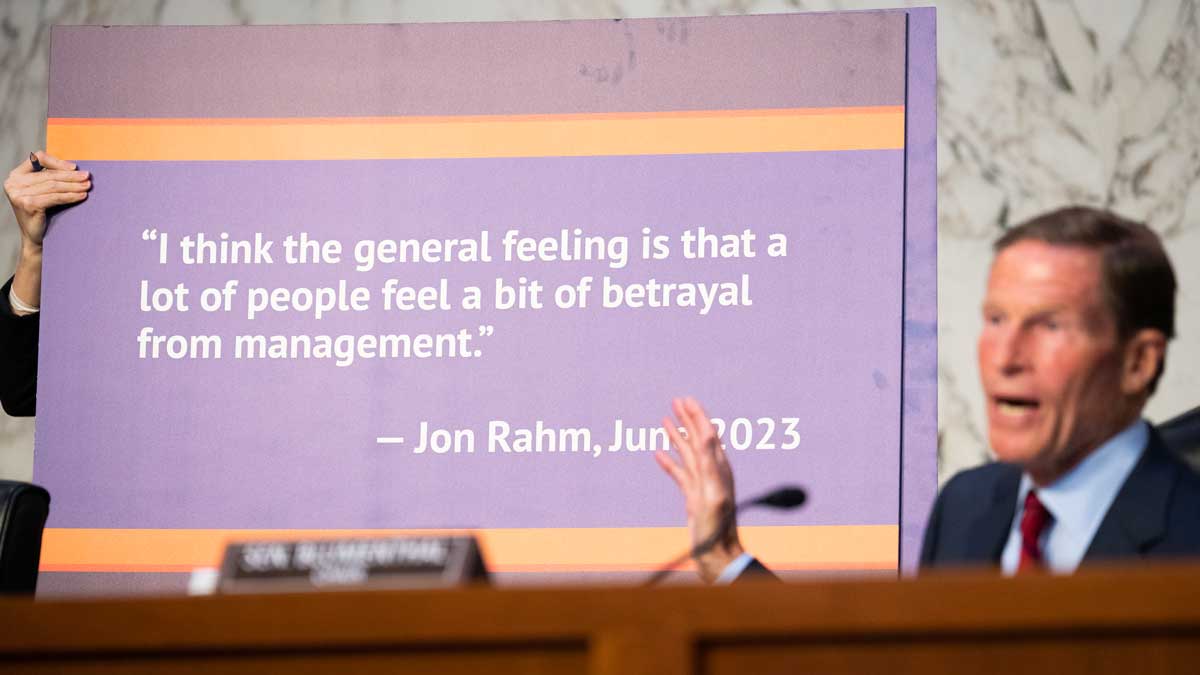
As Blumenthal jabbed at Price and Dunne, Johnson was far more conciliatory, at one point discussing Wyndham Clark’s U.S. Open win with Dunne as two golf buddies might in the 19th hole. (“He was awesome!” Dunne said.) It wasn’t the only golf chatter. Sen. Marshall of Kansas expended a moment of his allotted time to shoutout his fellow Kansan, four-time PGA Tour winner Gary Woodland.
Johnson went as far as to say that the government shouldn’t be meddling in Tour-PIF matters — an odd thing to proclaim, given he, in part, called the hearing. “Negotiations are often delicate, mostly private, and I fear Congress’s getting involved at this stage could have negative consequences,” he said. Paul, who lobbied in 2021 to stop the U.S. from selling arms to Saudi Arabia, aired similar concerns, saying, “I see a certain illegitimacy to the proceedings today.”
Sen. Hawley of Missouri was less interested in the Tour’s dealings with Saudi Arabia than he was with the business the Tour has conducted in China, where as recently as 2019 it had a 20-year agreement to conduct events under the banner of PGA Tour China. In some of the most pointed questioning of the day, Hawley asked Price why the Tour would partner with a nation that “treats its own people as slaves,” a reference to the labor camps where the Chinese government has been accused by the United Nations of detaining up to a million Uyghurs. Price didn’t offer much in a way of a response other than to say that the deal had been terminated.
The hearing wasn’t all hard ball. When a senator asked Dunne about his love for the game, Dunne — who also is on the membership rolls at Pine Valley and Shinnecock Hills — said he sees golf as a vehicle for building relationships, adding “it’s hard to hate someone you play golf with.” Notably, some of Dunne’s negotiations with Al-Rumayyan were conducted on a London golf course. “I think golf is a force of good,” he said.
Dunne was on a golf course on the morning of Sept 11, 2001, trying to qualify for the U.S. Mid-Amateur. The game likely saved his life, he has said, given his investment firm’s office was on the 104th floor of the South Tower. Sixty-six of his colleagues and friends died that day. That 15 of the hijackers were Saudi citizens has made the Tour’s dealings with the PIF even more fraught.
How does Dunne, he was asked, reconcile that inconvenient truth?
“Senator, I will say now, what I said on September 12, of ’01, what I said to my children growing up,” Dunne said. “Anyone remotely involved, anyone tangentially involved, anyone who profited, we should pursue them with extreme prejudice, to the full extent, to the complete capacity.
“If someone does a crime, you go after them. For this crime, it’s death.”
Dunne, as he’s said before, stressed that his conscience is clear.
“I honestly believe that our government with both President Bush, President Obama, our military and our brilliant, brilliant (Navy) Seals, did their job and anyone that is involved with that has answered justice,” he said.
Not everyone agrees with that assessment. After the nearly three-hour hearing adjourned, Sean Passananti loitered in the lobby outside the hearing room. He was wearing a blue cap emblazoned with “9/11 Justice,” an organization he has rallied behind to honor and seek retribution for his father, Horace, who died in the North Tower.

Passananti told me that he and the other members of his group have no problem with Saudi Arabia investing in golf or any other sport or business for that matter. Their issue is with the Saudi Arabian government not taking accountability for “enabling the 9/11 attacks,” and his organization sees “the PIF and the Saudi government as one in the same.”
He said his organization also takes no particular issue with Dunne, who has drawn much praise for establishing a foundation to cover the college tuition costs for the children — 69 in all — of his fallen colleagues.
“He’s legendary in the 9/11 community, and I don’t think there’s a better person than him who could handle this deal,” Passananti said. “We’re on the same side. It’s a very complicated issue. I think our fight is our fight, and he’s doing what he can do.”
Dunne didn’t hang around to speak with reporters. At the conclusion of the hearing, he disappeared through a door in the back of the room. He had said his piece. Time to get back to his beautiful, messy, wonderful, imperfect life.



